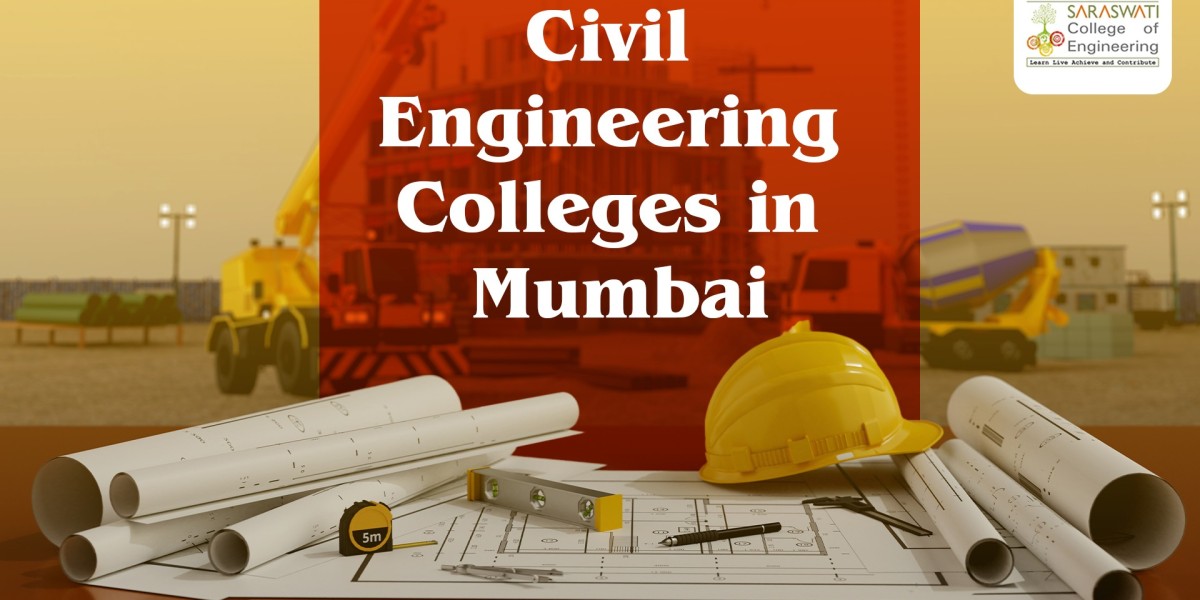Introduction
Civil engineering has long been regarded as one of the most impactful branches of engineering, forming the foundation for infrastructure, urban development, and sustainable growth. From transportation systems and bridges to smart cities and environmental solutions, civil engineers play a vital role in shaping society. For students aspiring to pursue this discipline, Mumbai stands out as a prime destination.
As India’s financial and educational hub, the city not only offers exposure to large-scale projects and diverse career opportunities but also houses reputed engineering institutions that combine academic rigour with practical learning. This blog explores why Mumbai is an ideal choice for civil engineering, along with insights into eligibility, duration, fees, and the advantages of pursuing the program at SCOE.
Why choose Mumbai for civil engineering?
From the bridges that connect cities to the sustainable structures that define modern skylines, civil engineers shape progress in every sense. For students stepping into this field, the choice of where to study becomes just as important as the course itself.
Mumbai, India’s bustling financial capital, offers an unmatched blend of academic excellence, industry exposure, and real-world learning opportunities. With access to large-scale infrastructure projects, renowned institutions, and a vibrant professional ecosystem, the city provides an ideal environment for aspiring civil engineers to transform ambition into achievement.
Civil Engineering: Eligibility, Duration and Core Subjects
Civil engineering remains one of the most sought-after branches of engineering, combining scientific principles with creativity to design and develop infrastructure for society. For students considering this path, it is essential to understand the basic academic requirements and curriculum structure.
Eligibility:
Completion of 10+2 (or equivalent) with Physics, Chemistry, and Mathematics.
Minimum aggregate of 50% marks (relaxations may apply for reserved categories).
Admission is typically based on entrance examinations such as JEE Main, MHT-CET, or university-specific tests.
Duration:
Bachelor of Engineering (B.E.) or Bachelor of Technology (B.Tech) in Civil Engineering spans 4 years, divided into 8 semesters.
Core Subjects:
Students gain both theoretical knowledge and practical skills through a wide range of subjects, including:
Structural Engineering
Geotechnical Engineering
Transportation Engineering
Environmental Engineering
Hydraulics and Water Resources
Surveying and Construction Materials
Fees and ROI
When evaluating civil engineering colleges in Mumbai, tuition fees and return on investment (ROI) are critical considerations for students and parents alike. The city offers a wide spectrum of options - from affordable government institutions to reputed private colleges with advanced facilities.
Government/Autonomous Colleges: ₹1.5–3.5 lakh (entire program)
Private Colleges: ₹4–8 lakh (entire program)
Premier Institutes: ₹8–12+ lakh (entire program)
While the fee range varies, the long-term ROI in civil engineering is notable. Mumbai’s robust infrastructure projects - including metro expansions, smart city initiatives, high-rise developments, and coastal roadways - create a steady demand for civil engineers. Graduates often secure positions with top firms in construction, urban planning, and environmental services, ensuring that the initial investment in education yields sustainable career growth.
Why choose SCOE for civil engineering?
Saraswati College of Engineering (SCOE), Navi Mumbai, has consistently been recognized as a trusted destination for engineering aspirants. Its NAAC A+ accreditation, NBA-recognized programs, and affiliation with the University of Mumbai ensure academic credibility, while its strong industry connect prepare students for successful careers.
Key reasons to choose SCOE for Civil Engineering:
Academic Excellence: NBA-accredited civil engineering program backed by 20+ years of institutional expertise.
Practical Exposure: Well-equipped labs, advanced survey instruments, and structural analysis software for hands-on learning.
Industry Connect: Collaborations with top recruiters in infrastructure, real estate, and consultancy sectors.
Career Support: Placement training, internships, and alumni mentorship to bridge the gap between college and industry.
Future-Ready Learning: Focus on sustainable design, smart cities, and modern construction technologies.
Conclusion
Mumbai’s civil engineering colleges open doors to careers that build the backbone of modern society, roads, bridges, skyscrapers, and sustainable cities. Among them, SCOE stands out for its academic rigour, advanced facilities, and strong placement record.
For students seeking a future-ready civil engineering education in Mumbai, SCOE offers the right balance of affordability, credibility, and career opportunities. Choosing SCOE is not just an academic decision - it is an investment in building a successful future.
FAQs
Q1. What is the eligibility for civil engineering after 12th?
Students must complete 10+2 with Physics, Chemistry, and Mathematics (minimum 50% aggregate).
Q2. What is the duration of a civil engineering degree?
The Bachelor of Engineering (B.E.) in Civil Engineering is a 4-year program, divided into 8 semesters.
Q3. What are the core subjects in civil engineering?
Key subjects include Structural Engineering, Geotechnical Engineering, Transportation Engineering, Environmental Engineering, and Construction Technology.
Q4. What is the average fee for civil engineering colleges in Mumbai?
Fees typically range from ₹1.5–3.5 lakh in government colleges and ₹4–8 lakh in private institutions.
Q5. What is the average salary for civil engineering graduates?
Fresh graduates in Mumbai can expect starting packages between ₹5–8 LPA, depending on skills and specialization.






